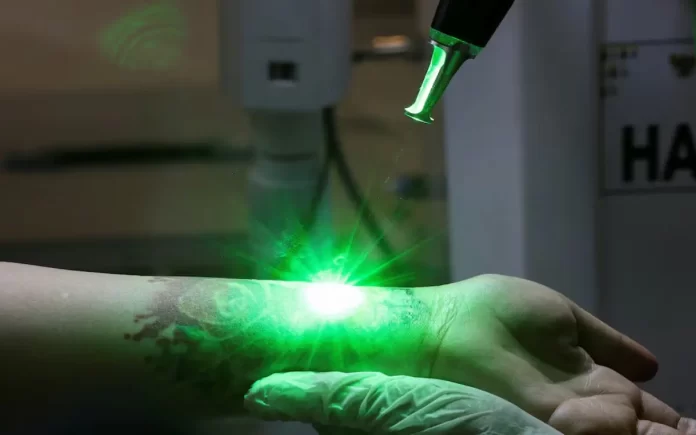Jakarta: In Jakarta, amidst the serenity of Ramadan, Bima Abdul Sholeh, 32, sat composed, his demeanor serene as a doctor, armed with a laser pointer, gently erased tattoos from his face. This unique event, orchestrated by a charitable organization, unfolds during the sacred month of Ramadan, providing devout Muslims like Bima with an avenue to seek repentance.
Over a hundred Indonesians, echoing Bima’s sentiments, have enrolled for tattoo removal procedures, graciously offered free of charge by the Amil Zakat National Agency. This initiative, now in its fourth year, underscores a profound spiritual journey during Ramadan, observed this year from early March to April.
“Ramadan is the perfect momentum for this programme. To erase the tattoos is a form of worship to Allah,” remarked Raja Zamzami, the event coordinator. “These people realize they want to repent … leave their past lifestyles and mistakes.”
Also Read: Maryland Governor Urges Swift Congressional Action for Bridge Rebuild Post-Collapse
Tattoos, deemed forbidden in Islam due to their classification as physical mutilation of the skin, carry societal implications. Although Indonesia’s predominantly Sunni Muslim population practices a more moderate form of Islam, tattoos still evoke associations with street subcultures and lifestyles frowned upon in religious teachings.
“At some point I thought, what’s the use of this (rough lifestyle)? There’s no end to it. I decided to repent,” reflected Bima, moments before engaging in prayer in his apartment, post one of his removal sessions. His decision to part ways with his past life remains deeply personal, shrouded in discretion. “I stopped doing bad things,” he added, his conviction palpable.
Nila Novian, 24, undergoing the removal of a small tattoo etched in silver on her forearm, shared her perspective, citing her motivation as “more about avoiding negative public stigma.”



